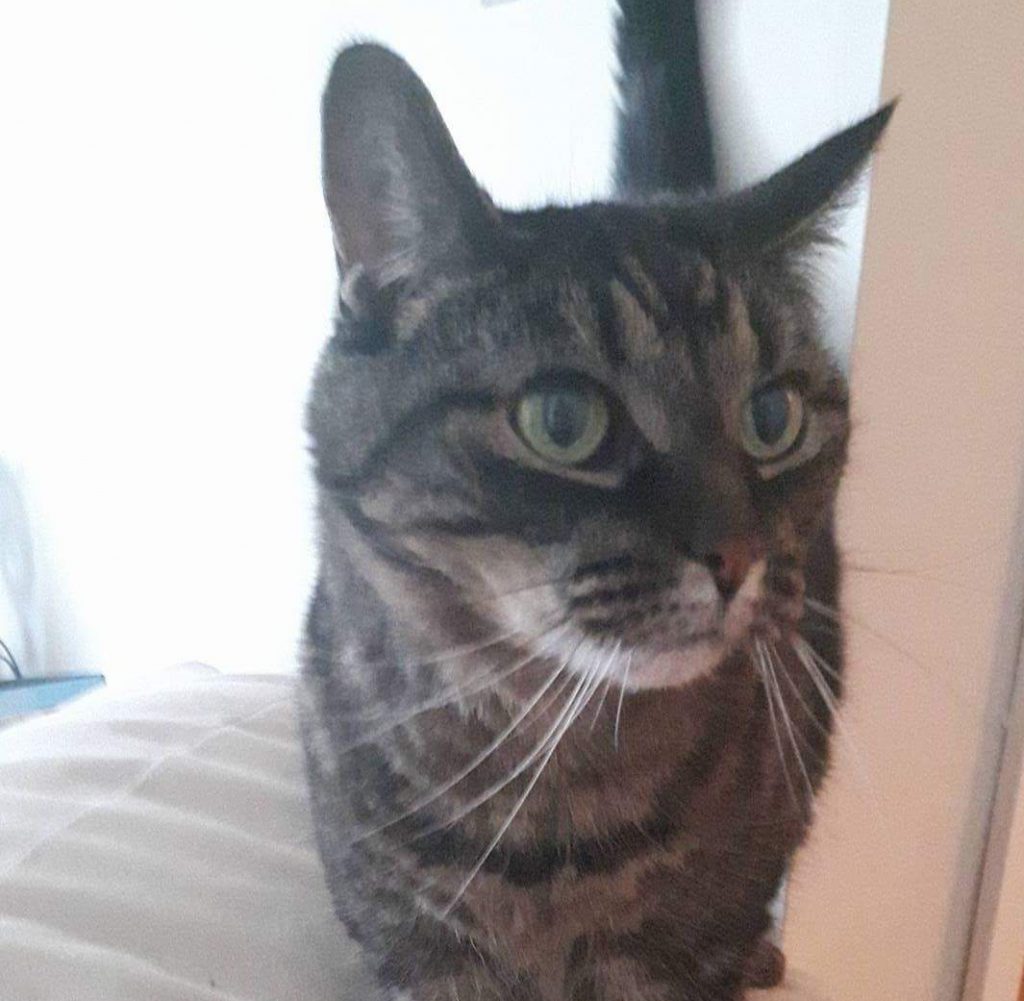My sixteen-year-old cat Lois was diagnosed with Chronic Kidney Disease (CKD) in early 2015. She was dropped off at a veterinary hospital as her owners at that time could no longer take care of her. It was there that she was diagnosed with CKD, and there, about a year and a half later, that I found her.
The kidneys main functions are to regulate fluid levels in the body, help to control blood pressure, and filter and dispose of waste in the body. Chronic Kidney Disease, usually found in older cats, is when the kidneys begin to decrease in function over a period of time. There are many different options for treating CKD in cats, such as medication that can slow the disease progression and help to lower the blood pressure. However, living as a clinic cat, Lois spent a lot of the time scared and hiding, making it nearly impossible to give her any treatment to aid with her symptoms.
When I first brought Lois home, I watched her behaviour change from being scared and withdrawn, to an excited, happy and playful kitty. Unfortunately, she continued to show symptoms of her disease; bouts of vomiting, frequent drinking and urination, and weight loss. As she was still scared of receiving medication, I decided to try using a different route and I began learning about how renal diets can be very beneficial for cats with chronic kidney disease. Although there is no one perfect food for all cats with kidney disease, using a therapeutic diet can greatly impact their quality of life.
The two important factors I focused on when choosing a good diet was to find one with a low but good quality protein and restricted phosphate content. Having a low yet good quality protein will help to give your cat the quality of protein needed to make them feel better while also reducing the amount of toxins in the blood that their kidneys would need to filter out (lessening the kidney’s workload). As CKD can cause phosphorus levels to raise in the body, which is harder on the kidneys to process, using a diet with a low phosphorous content protects the kidneys from further damage. Taking all of these factors into consideration, I decided to go with “Royal Canin’s Renal S” diet. I was nervous at first that the diet alone wouldn’t be able help her feel better, but Lois loved her new food, and as it didn’t seem to make her as nauseous, her appetite was A+. A combination of not feeling too nauseous to eat, and having a low but god quality protein helped her gain back some weight.
Lois has been on the Renal S diet for about six months now, and it’s very clear the difference a therapeutic diet has made for her. Recent blood work showed that since starting the diet, her kidney values have either stayed the same or improved! I may not be able to cure her CKD but switching to a renal diet has greatly improved her quality of life and has hopefully given us a few more years together.
Written by: The Harbour Cities Veterinary Hospital Team




